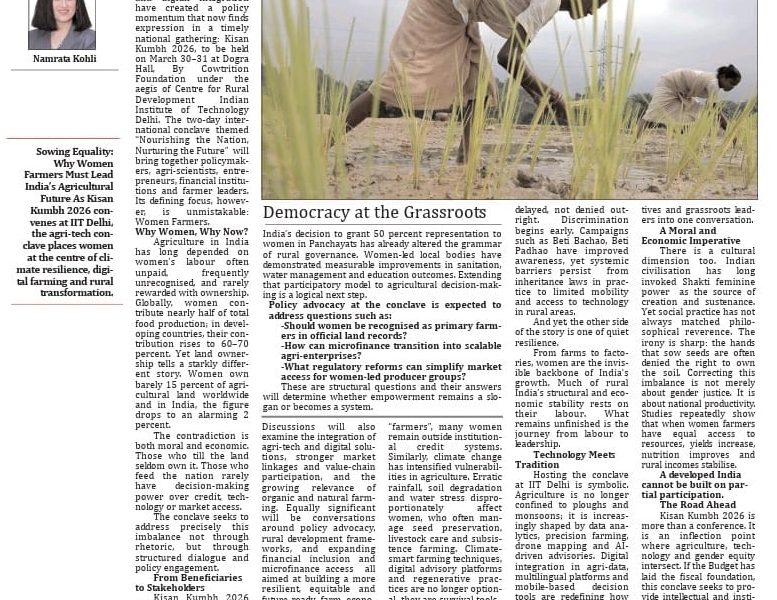A journalist from Indore moves to Delhi to work with a leading media house in New Delhi. A classically trained female musician from Kanpur finds it difficult to pursue her unconventional career in a non-metro, and moves to Mumbai in search of name, fame, money. A fashion designer from Jaipur relocates to Delhi to intern with top designers. A fresh engineering graduate based out of Bikaner moves to Gurgaon because the “pay is significantly higher in metros and opportunities for growth are also there. Here I may earn Rs 20,000 as against a good Rs 60,000- Rs 1,00,000 in a metro. My town has no MNCs, corporate hubs and no exposure to big opportunities. Staying in my cocoon means goodbye to growth.”
Beyond finances, young women from Tier-2 and Tier-3 cities are migrating to metros for freedom. They want financial independence, away from family control. It’s an escape from the small-town patriarchy —no curfews on timings and dress codes and more importantly, no pressure to “settle down.” The city gives them space to explore life, delay marriage, and find love on their own terms. Here, they make choices—what to wear, where to go, how to live. But the fact is this freedom- both financial and mental- comes at a cost. Life in general is tough for women because they must prove themselves at every point. But more so when you are away from home in a strange land. The journey is often riddled with socio-economic and emotional security challenges.
The biggest hurdle? Housing. Skyrocketing rents in Mumbai, Delhi, and Bangalore eat up most of their earnings. But finding a place is even tougher—many landlords refuse single women, fearing “unwanted social elements” or “lifestyle concerns.”

Sujata Roy, a top-tier corporate professional who moved from Kolkata to Delhi, recalls her toughest lesson: “Never confide in anybody, esp men, that you live alone. In fact this advice was reiterated later by a male colleague of mine.” It took Sujata almost a decade of struggle—mentally, physically, emotionally, and financially—to finally feel settled.
“Society sees single women as easy prey. When you’re still climbing the ladder, even spending Rs 2,500-3,000 on a maid feels like a big expense. And we barely find help because we leave early, return late, and end up surviving on packaged food. You come back to a cold house… and that’s how India’s migratory single women become the biggest brand ambassadors of Maggi. Calling your parents and siblings back home is a mandatory task assigned. Your break-ups become ten times tougher as your emotional anchors are back home,” she says.
Work-life balance? A myth. Many live paycheck to paycheck, forced to return home if they lose their jobs—some battling depression, others too ashamed to go back as “failures.” For many, the only way out is co-living spaces—cheaper rent, better security, and a sense of community.
Unlike men, women in new cities lack strong networks, making adjustment tougher. They battle catcalling, stalking, and workplace harassment, all taking a mental toll. Society questions their independence, adding pressure and self-doubt. The key to survival? Finding support—women’s groups, online forums, and like-minded allies to combat loneliness and stand strong.
The workplace has its own challenges – contractual jobs and gig work further add to financial instability. Gender bias in hiring, promotions, and pay structure remains an issue in male-dominated sectors.
It is true that metro life offers career growth, financial freedom, and independence—but at a cost. Loneliness, safety risks, and workplace bias test their strength. Yet, those who can somehow endure the five to ten-year grind, emerge stronger. They redefine themselves, carve their own path, and take charge of their future. If they can persevere, they find their sweet spot and are successful in creating a new identity for themselves- come to know who they are, where they are going and what they want to do in the future.
With resilience, networks, and smart finances, small-town women aren’t just surviving—they’re shattering barriers and owning their space. Often, they outshine city natives. Their risks are higher—but so are their rewards.




